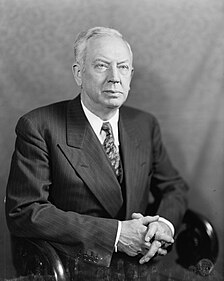
The 2010 Pennsylvania gubernatorial election was held on November 2, 2010, to elect the Governor and Lieutenant Governor of Pennsylvania, concurrently with elections to the United States Senate in Pennsylvania and other states and elections to the United States House of Representatives and various state and local elections.

The Pennsylvania lieutenant gubernatorial election of 2010 was held on November 2, 2010. The winning candidates for Governor and Lieutenant Governor will serve a four-year term from 2011 to 2015. In Pennsylvania, the Lieutenant Governor is elected on the same ticket as the Governor, so the only campaign for this office was the primary election. As a result of Tom Corbett's election to the position of governor, Jim Cawley became the new Lieutenant Governor.

The Pennsylvania Gubernatorial election of 1990 was held on November 6, 1990. Incumbent Democratic Robert P. Casey easily defeated Republican Barbara Hafer. Governor Casey defeated Ms. Hafer by a margin of 35.29%, and carried 66 out of 67 Pennsylvania counties.

The Pennsylvania gubernatorial of 1860 was held on October 9, almost one month before Presidential election. Andrew Curtin of the newly formed Republican Party won the governor's mansion over Democrat Henry Donnel Foster.

The Pennsylvania gubernatorial election of 1950 was held on November 7. For the twenty-second time in twenty-five elections, the Republican candidate was victorious, but by a much smaller than usual margin. Superior Court Judge John S. Fine defeated Democrat Richardson Dilworth, the City Controller of Philadelphia.
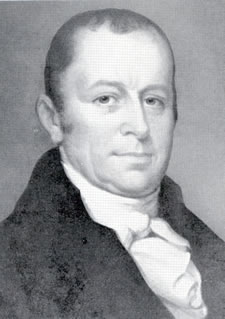
The Pennsylvania gubernatorial election of 1814 occurred on November 8, 1814. After contemplating retirement, incumbent Democratic-Republican governor Simon Snyder instead chose to run for reelection. He earned a third term as the state's executive after defeating Federalist candidate Isaac Wayne, a former member of the Pennsylvania State Senate.

The Pennsylvania gubernatorial election of 1811 occurred on November 5, 1811. Incumbent Democratic-Republican governor Simon Snyder won re-election over Federalist candidate William Tilghman, the Chief Justice of the Pennsylvania Supreme Court, by a wide margin. Two of the major policy goals on which Snyder campaigned were increasing spending for infrastructural upgrades and authorizing the transfer of governmental operations from Lancaster to Harrisburg.

The Pennsylvania gubernatorial election of 1808 occurred on November 8, 1808. Incumbent governor Thomas McKean, a former Democratic Republican who had faced impeachment by members of his own party during the prior term, was not a candidate. Democratic-Republican candidate Simon Snyder, former Speaker of the Pennsylvania House of Representatives defeated Federalist candidate and former U.S. Senator James Ross to become Governor of Pennsylvania. Snyder, with the aid of a supportive press, campaigned as a "New School Democrat" and attempted to ally himself with James Madison. He painted the former McKean administration as elitist and advocated for popular democracy, governmental intervention in the economy, and infrastructural support for Western Pennsylvania counties.
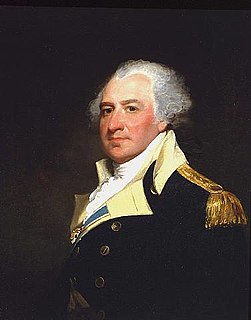
The Pennsylvania gubernatorial election of 1796 occurred on November 8, 1796. Incumbent Democratic-Republican governor Thomas Mifflin successfully sought re-election to a third term. For the second consecutive election, he was victorious over U.S. Representative Frederick Muhlenberg, the Federalist candidate, by a wide margin.

The Pennsylvania gubernatorial election of 1793 occurred on November 5, 1793. Incumbent Democratic-Republican governor Thomas Mifflin successfully sought re-election to another term, defeating Federalist candidate and U.S. Representative Frederick Muhlenberg.

The Pennsylvania gubernatorial election of 1906 occurred on November 6, 1906. Incumbent Republican governor Samuel W. Pennypacker was not a candidate for re-election. Republican candidate Edwin Sydney Stuart defeated Democratic candidate Lewis Emery, Jr. to become Governor of Pennsylvania.

The Pennsylvania gubernatorial election of 1914 occurred on November 3, 1914. Incumbent Republican governor John K. Tener was not a candidate for re-election. Republican candidate Martin Grove Brumbaugh defeated Democratic candidate Vance C. McCormick to become Governor of Pennsylvania.
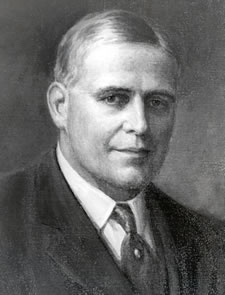
The Pennsylvania gubernatorial election of 1918 occurred on November 5, 1918. Incumbent Republican governor Martin Brumbaugh was not a candidate for re-election. Republican candidate William Sproul defeated Democratic candidate Eugene C. Bonniwell to become Governor of Pennsylvania.

The Pennsylvania gubernatorial election of 1922 occurred on November 7, 1922. Incumbent Republican governor William Sproul was not a candidate for re-election. Republican candidate Gifford Pinchot defeated Democratic candidate John A. McSparran to become Governor of Pennsylvania.
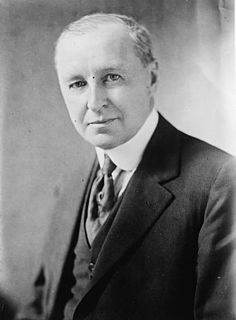
The Pennsylvania gubernatorial election of 1926 occurred on November 2, 1926. Incumbent Republican governor Gifford Pinchot was not a candidate for re-election. Republican candidate John Fisher defeated Democratic candidate Eugene C. Bonniwell to become Governor of Pennsylvania.

The Pennsylvania gubernatorial election of 1930 occurred on November 4, 1930. Incumbent Republican governor John Stuchell Fisher was not a candidate for re-election. Republican candidate and former governor Gifford Pinchot defeated Democratic candidate John M. Hemphill to win a second, non-consecutive term as Governor of Pennsylvania.

The Pennsylvania gubernatorial election of 1934 occurred on November 6, 1934. Incumbent Republican governor Gifford Pinchot was not a candidate for re-election. Democratic candidate George Howard Earle III defeated Republican candidate William A. Schnader to become Governor of Pennsylvania. This was the first Pennsylvania gubernatorial election won by the Democratic Party since 1890.

The Pennsylvania gubernatorial election of 1938 occurred on November 8, 1938. Incumbent Democratic governor George Howard Earle III was not a candidate for re-election. Republican candidate Arthur James defeated Democratic candidate Charles Alvin Jones to become Governor of Pennsylvania.

The 1942 Massachusetts gubernatorial election was held on November 3, 1942. Republican incumbent Leverett Saltonstall defeated Democrat Roger Putnam, Communist candidate Otis A. Hood, Socialist candidate Joseph Massidda, Socialist Labor candidate Henning A. Blomen, and Prohibition candidate Guy S. Williams.
